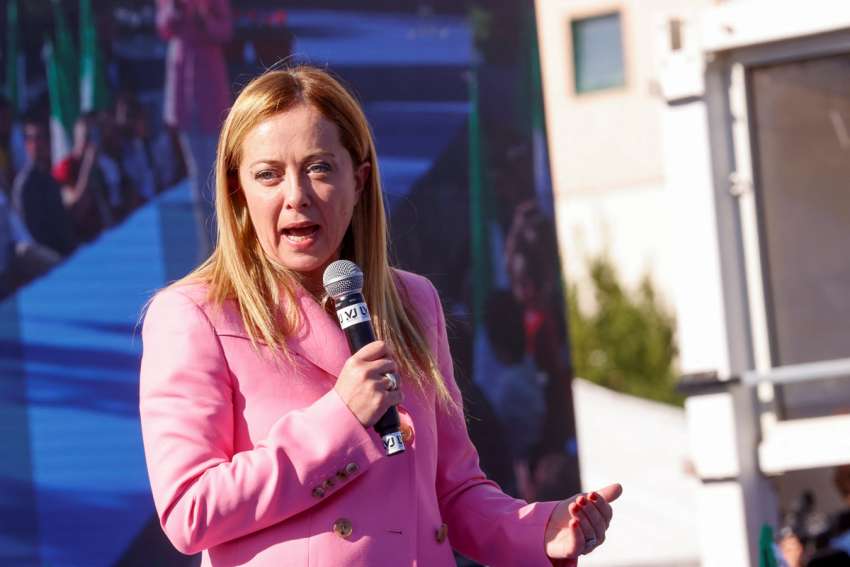ROME -- Italian Prime Minister Giorgia Meloni has urgently written to Lord Chancellor and Secretary of State for Justice Alex Chalk of the United Kingdom calling for the two countries to officially collaborate on facilitating 8-month-old Indi Gregory's transfer to Rome under the Hague Convention.
Indi suffers from a rare metabolic disorder known as mitochondrial disease, and her family was fighting for her not to be removed from life support by court order, as was the case of several other children in the past, including Alfie Evans and Charlie Gard.
Meloni wrote to Chalk outlining the urgent appeal made by Indi's Italian guardian Nov. 9 to the U.K. High Court. Christian Concern, an advocacy group helping the family, said in a Nov. 10 statement that Meloni urged the British secretary to see that it is in Indi's "best interests to be transferred to Rome."
The appeal called on Justice Robert Peel to cede jurisdiction of the case to the child's Italian guardian under Article 9(2) of the 1996 Hague Convention: "Recognition, Enforcement and Cooperation in Respect of Parental Responsibility and Measures for the Protection of Children."
After Indi was made an Italian citizen earlier in the week, the Italian consul in Manchester, England, Matteo Corradini, was appointed guardianship judge for the infant and issued an emergency measure recognizing the authority of the Italian courts in this case. The measure assumes protection of Indi, whose life is in imminent danger, and authorize her immediate transfer the Bambino Gesù Paediatric Hospital in Rome
The Court of Appeal was due to make a ruling late Nov. 10 on whether Indi's life support should be removed at the Queen's Medical Center in Nottingham, a hospice or the family home.
The Bambino Gesù pediatric hospital in Rome has agreed to accept Indi for treatment and to carry out a palliative procedure proposed by medical experts for Indi known as RVOT stenting, or right ventricular outflow tract stent, to improve pulmonary flow in infants. The Italian government has offered to fund the treatment at no cost to the National Health Service or U.K. taxpayers.
NHS officials and U.K. courts, however, have refused to allow the move or work on a risk assessment of such a move with a specialist air-ambulance service. Instead, the U.K. courts have repeatedly rubber stamped the NHS position on the case and ruled that it is in Indi's "best interests" to be allowed to die.
So far, there has been no response or comment from the U.K. government on the case.


